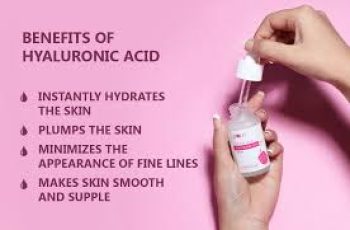
How often should you wash your face? Why?
We all know that to keep your skin healthy and fit, you should wash your face. By washing your skin, you protect it from overexposure to environmental aggressors like pollution and even makeup. By maintaining a balanced skin care routine, you can fight signs of aging, spots, and uneven skin tone.
But what is the best way to wash your face? Is it really important to make sure you wash your face correctly? We answer some of your most common questions.
How should I wash my face?
When we say “wash your face,” we don’t mean quickly squirting water into your skin and then moving on. No, you need to take more time and focus more on washing your face to get it really clean. Using a face cleanser that’s rich in skin-cleansing ingredients like glycolic acid can help you deep cleanse pores that may be clogged with makeup, dirt, and debris. Other issues, like dead skin cell buildup, are also easier to remove because the product can penetrate deeper into the skin’s layers, while water can’t.
How often should you use a face cleanser?
There’s no hard and fast rule telling you how often you should wash your face. We’ve always thought that the general idea is to wash your face twice a day, once in the morning and once at night. However, this is controversial, as even beauty experts can’t agree.
It really all comes down to your personal preferences and what works best for you and your skin type. For example, if your evening routine includes an oil-rich night cream, then you might enjoy cleansing in the morning. If you find that your skin feels good and is the thing you look forward to most after a refreshing splash of water, then you might be able to skip washing twice a day altogether.
Some dermatologists believe that the skin doesn’t need to be cleansed in the morning because it hasn’t been exposed to aggressive skin factors overnight and the skin barrier is fully functional and nourished. You don’t have to disrupt it by washing your face, but you can replenish it with skin-friendly ingredients by replenishing it with serums and moisturizers in the morning.
Is it better to wash your face once or twice a day?
Research shows that most skin types are suited to a simplified skincare routine. Just use a few well-chosen products with quality ingredients like AHAs and antioxidants, and you can allow your skin to achieve self-balance and, in a sense, “stand on its own two feet.” Granted, this isn’t the case for everyone, but for most, it’s the key to healthy skin.
It really all comes down to your personal preferences. If you have an oilier skin type, the desire for that “clean” feeling can become overwhelming. So, washing your face twice a day can keep your skin pristine and control excess oil production. But be careful, because washing too often can completely strip your skin of oils, triggering excessive oil production, which can lead to more breakouts and blackheads.
How often should I wash my face if I have acne?
If you suffer from acne, you may need to wash your face several times a day. As tempting as this may be, this can cause more harm, as many face washes – especially those designed for blemish-prone skin – contain a cocktail of harsh cleansers called sulfates, which are known to strip moisture from your skin and cause a host of problems, such as redness, inflammation, and more breakouts than ever before!
Some washes contain AHAs, such as glycolic acid, which are known to chemically exfoliate your skin without drying it out. This supports your skin care routine and keeps your skin flawless. When using these types of formulas, it’s best to wash your face at night so that the skin can recover undisturbed overnight and look refreshed the next morning.
Why can’t you wash your face in the shower?
Washing your face in the shower may feel like the ultimate multitasking experience. However, there are some important factors you should consider:
The skin on your face is more sensitive than the skin on your body. Temperature is important, and while hot water can help open up the pores and allow products to absorb into the skin layers, it can also dry out the skin and strip the face of moisture and natural oils for extraction.
Washing your face in the sink allows you to finish washing your face with cold water, something none of us would like to do in the shower. This is known to stimulate blood circulation and awaken the overall glow of your complexion.
Keep your face away from the shower head and any steam to prevent drying out your skin. It’s also recommended not to use the same cleansers on your face that you use in the shower, as this can cause a number of skin problems.
Can I wash my face with just water?
As mentioned in the previous section, splashing your face with warm and cold water can help keep your skin clean. For some lucky people, relying solely on water to wash your face is actually feasible. But before you throw away your face cleanser, consider your skin type. If you have oily skin or someone who sweats a lot, skipping showers can lead to skin problems such as blemishes.
Our faces are constantly exposed to bacteria, dirt, and pollution. If left untreated, it can irritate the skin, clog the pores, and accelerate skin aging. Face washes and cleansers are effective in removing all of these substances from the skin. Always make sure to use the right products for your skin, as it is essential to keeping your skin balanced.
Is it OK to wash your face three times a day?
In a word: no. Washing your skin too often will only lead to problems. Even if you use a gentle formula, it will dry out the skin, and the water and oil levels needed for the skin’s protective barrier to function will no longer be there, causing the skin to become inflamed, damaged, and uncomfortable.
If you find that your skin needs a freshening up throughout the day, or you’ve been working out hard at the gym, water is the best option to get that clean feeling again without causing irritation.
Is it better to wash your face in the morning or at night?
Evening is the best time to focus on skin care. Not only do you need to remove the day’s layers of skin, but you also need to remove makeup and daily sunscreen, which, if not removed, can lead to breakouts and premature aging. Here’s a quick rundown of your full-day routine:
Morning Routine:
Splash of cold water to boost circulation and reduce swelling
Apply serum (with hyaluronic acid or vitamin C to make skin more energized and moisturized)
Moisturizer
Eye cream
SPF 30 or higher
Makeup
Evening Routine
Makeup remover
Face cleanser
Serum (with salicylic acid to deep cleanse skin while you sleep)
Moisturizer (with retinol if desired)
Eye cream
There are a few routine ideas you can try on your own. Ideally, it’s best for your skin to use a face cleanser at night to ensure that it’s completely clean and ready to absorb subsequent care products.
Is there a downside to washing your face every day?
While dermatologists don’t agree on whether we should wash our faces once or twice a day, they all agree that it’s important to wash your face every day. By washing your face daily, you keep your skin free from free radicals, makeup residue, bacteria, and other stressors your face is exposed to every day. Whether you wash your face once or twice a day, doing so every day can prevent your skin from turning gray, covered in blemishes, and showing signs of aging.
So, whether you wash your face once or twice a day, what really matters is that you do it every day, even if it sometimes feels like a huge effort, especially when you’re crying your head off to bed.
Fortunately, with today’s smart products and powerful formulas, you can enjoy all the benefits of healthy skin without breaking a sweat.


